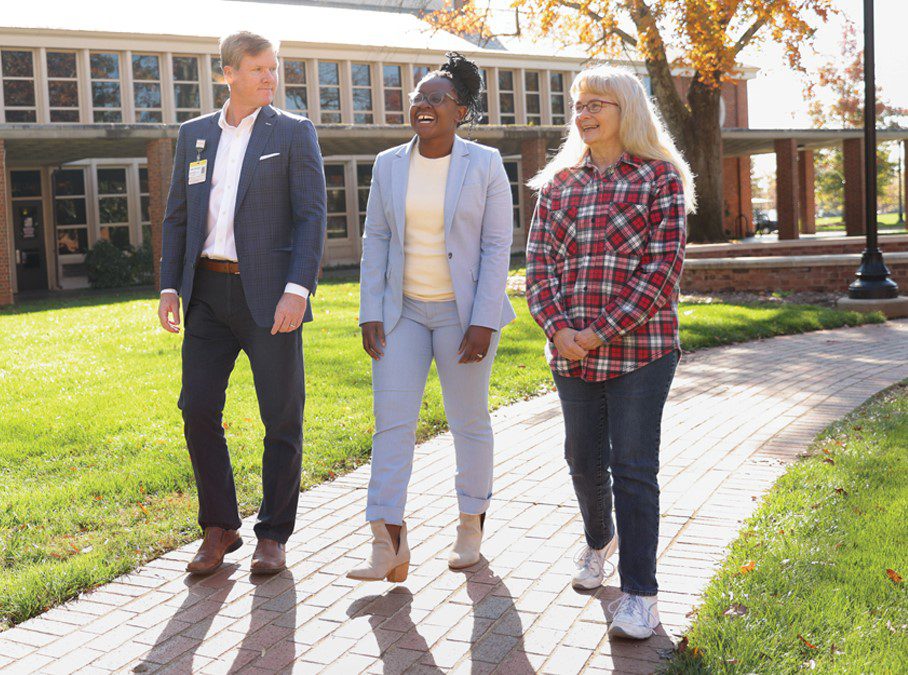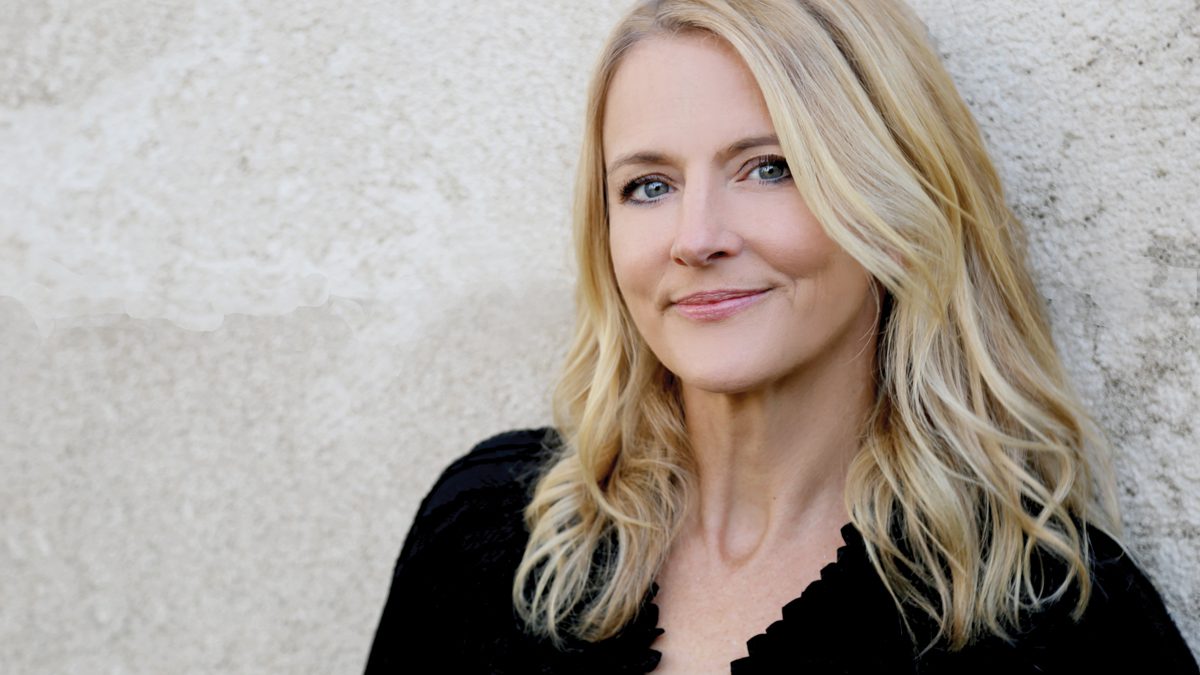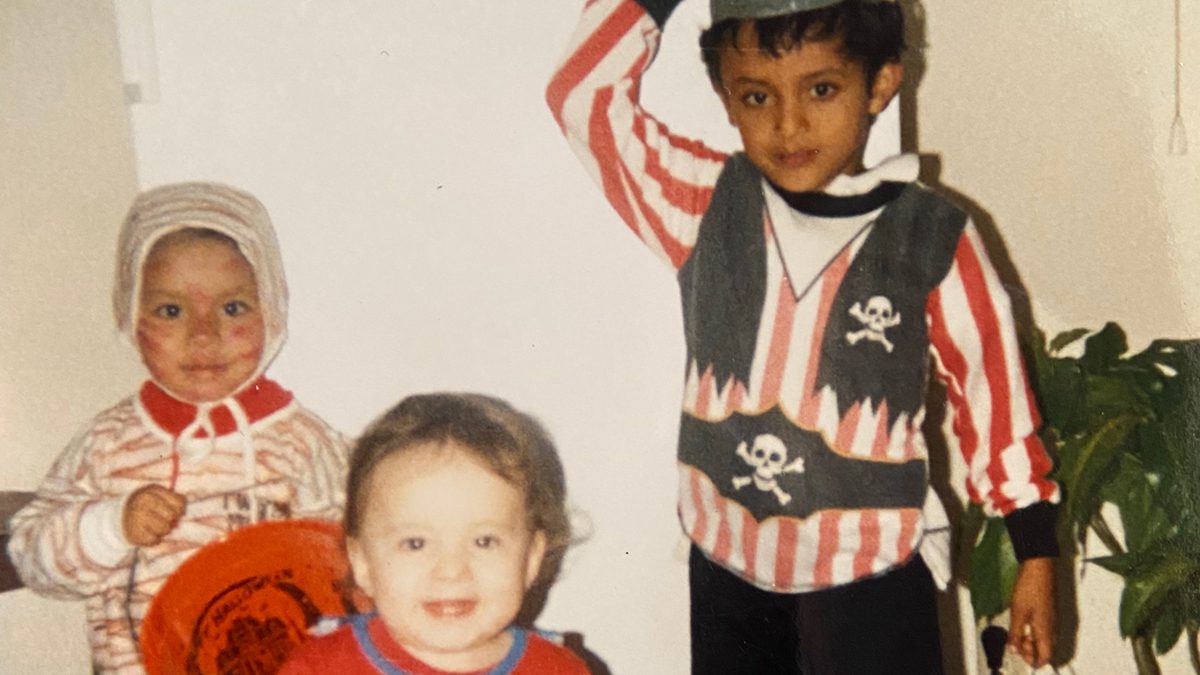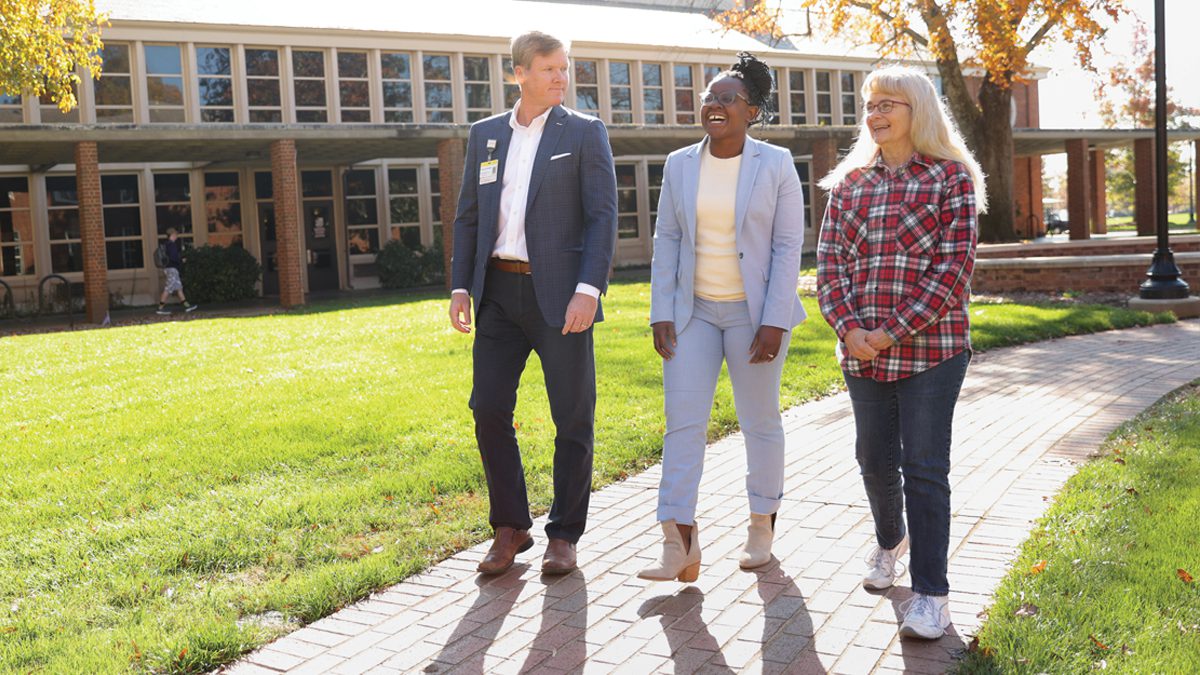
Feature
Milestone for the Upstate MLP
For five years, the Upstate Medical Legal Partnership between Furman, Prisma Health and South Carolina Legal Services has been finding solutions through collaborations.
By Jerry Salley ’90
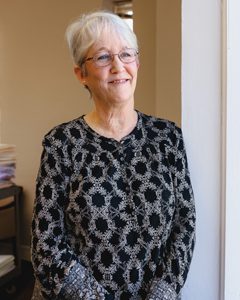
Melanie Stiles, one of the Upstate MLP’s first clients / Jeremy Fleming ’08
Sometimes, you know exactly where to go to solve a health problem. And sometimes it’s not so clear. Imagine, for example, a patient whose asthma is exacerbated by the roaches infesting her apartment. Who can help best: a doctor to treat her asthma symptoms, or a lawyer to help make sure the conditions in her apartment are livable? Meaningful solutions to many health problems require legal expertise, says Leslie Fisk, the managing attorney of the Greenwood office of South Carolina Legal Services.
“When clients are having problems, they don’t think, ‘Oh, this is a legal problem’ or ‘Oh, this must be a health problem,’” she says. “They’re just thinking, ‘There are roaches in my apartment, and I can’t handle this anymore.’”
The Upstate Medical Legal Partnership (Upstate MLP), which celebrated its fifth anniversary this past fall, was established to help families address civil-legal problems that impact their health, such as moldy apartments, issues with benefits, elder care and more.
The partnership between Furman University’s Institute for the Advancement of Community Health, Prisma Health and South Carolina Legal Services became official on Oct. 22, 2016, with the goal of working to improve health outcomes for low-income families throughout the Upstate. Throughout those five years, the partnership, the first of its kind in South Carolina, has increased access to legal assistance for hundreds of patients whose medical problems have roots in or are made worse by a social or legal challenges.
In 2019, the Upstate MLP received a $1.025 million three-year grant from The Duke Endowment to engage in statewide collaboration with other medical legal partnerships to determine best practices and achieve maximum impact. And there is great growth potential for such partnerships in the future, Fisk says.
“There are no downsides to this model,” she says. “Medical professionals see a problem that has a legal component – they help get in touch with us. We see issues that may have a medical component – we help get in touch with them.”
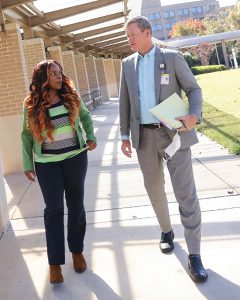
Nicole Spencer with Mitchell / Jeremy Fleming ’08
‘Our hands would have been tied’
Melanie Stiles knows firsthand the impact a partnership like this can have. Stiles was one of the Upstate MLP’s first clients. Her son, Jacob Stiles, who has autism and behavioral and mood disorders, got into legal trouble at age 17. But he turned 18 in jail – beyond the age at which his parents could legally advocate for him. At the time, the family’s Prisma Health pediatrician, Nancy Powers, was already in conversation with Kirby Mitchell ’90, a senior litigation attorney with South Carolina Legal Services, about forming an Upstate MLP. Jacob was just the impetus they needed to move forward. To be part of solving the serious legal problems for her autistic son, Stiles needed the legal authority to act on his behalf by filing a civil guardianship action. Mitchell, who became the Upstate MLP’s legal director, helped Melanie Stiles obtain guardianship and found a public defender to take the case.
“Jacob got his day in court,” she remembered, “and I had the opportunity to write a letter to the judge, just sharing from my heart that it would not do society well for him to be incarcerated for 45 years – but to put him in a situation to assist him in doing right, that would be much more beneficial. And at the end of the day, thankfully, the judge agreed.”
Jacob Stiles is now living on his own in transitional housing, and Melanie Stiles is still grateful for the help her family received. “Our hands would have been tied if it wasn’t for the Upstate MLP,” she says.
‘I wouldn’t have known what to do’
Kathy Johnson received an unfortunate surprise as her mother’s health declined. She learned that she did indeed have the legal authorization to make financial decisions on behalf of her 84-year-old mother, Doris – but she did not have the legal authority to make health care decisions. Her mother’s dementia had gotten worse, and although Johnson was grateful for the help and services she was receiving at the Prisma Health SeniorCare PACE Center in Greenville, South Carolina, she knew her mother was not able to make her own medical decisions. “Her caretakers would still talk to me, because she couldn’t understand,” Johnson says, “but they wanted to make it legal.”
Doris Johnson was assigned a guardian ad litem, but Kathy Johnson was determined to take the responsibility for her mother’s care herself. That process led her to South Carolina Legal Services and Melanie Maloney, a paralegal with the Medical Legal Partnership.
“Melanie stayed with me and explained the situation and the process, and all that I was going to have to do,” Johnson remembers. The process eventually led to Kirby Mitchell’s office and a Zoom court session – which Johnson wasn’t particularly looking forward to.
“I was scared to death, because I hate judges,” she laughs. “But Kirby sat there and he talked to me – he was just really nice.”
With the Upstate MLP’s help, Johnson was able to obtain the legal authority privileges she needed to take care of her mother, who is still in care.
“Without them, I wouldn’t have known what to do or where to go,” she says. “Melanie was just amazing from start to finish, and Kirby was really good, too. It just really helped me so much.”
‘There were so many times that I was so defeated’
Nicole Spencer was not expecting to find herself in a legal quagmire. “I didn’t really understand the struggle for grandparents to get custody in South Carolina,” she says. “I had no idea, because I had been in my granddaughter’s life since birth.”
Spencer was taking care of her infant granddaughter, Camillia, after the girl’s mother, who had been struggling with addiction, left for North Carolina. “You can’t just uproot a child,” Spencer says. “So I said I’d raise her. At that point, I was the only constant she had.”
Camillia’s father was fighting for custody, but until that was resolved, the baby was Spencer’s responsibility. So when the pediatrician found a possible heart murmur, Spencer had to find a way to get her granddaughter to a specialist. To get a referral to a cardiologist, Spencer needed to establish custody of Camillia. And to do that, she needed help from the Upstate MLP. Spencer had worked as a psychologist at the S.C. Department of Juvenile Justice but was laid off during the pandemic.
“I didn’t have the resources to have an attorney,” says Spencer. “Nor did I even know where to start.” The ongoing process has dragged on for longer than a year, through mediation and family court. At one point, Camellia was removed from Spencer’s care, with not even visitation rights. Mitchell’s help has been critical to Spencer’s determination to stay in the fight, she says.
“There were so many times that I was so defeated,” she says. “I was saying, ‘Just forget it.’” But she persisted, and with time and the Upstate MLP’s assistance, grandmother and granddaughter got to stay together. “I had no contact with my granddaughter,” says Spencer. “And we went from that this time last year to her legally being placed with me.”
